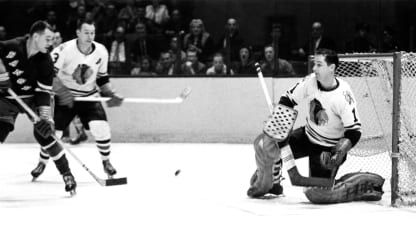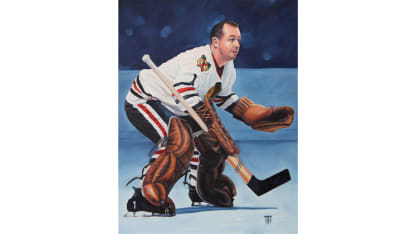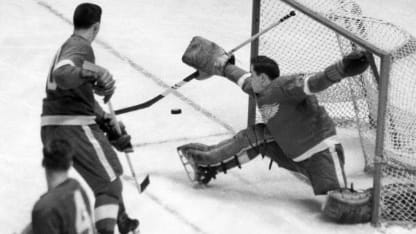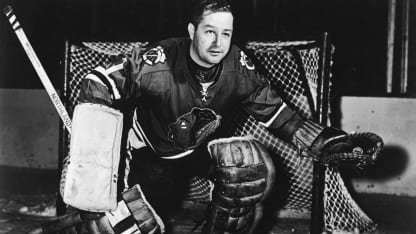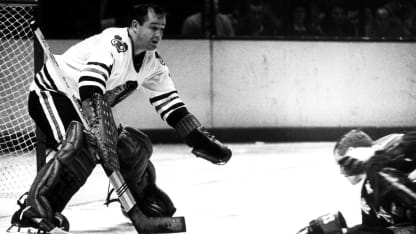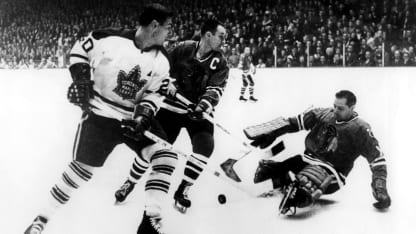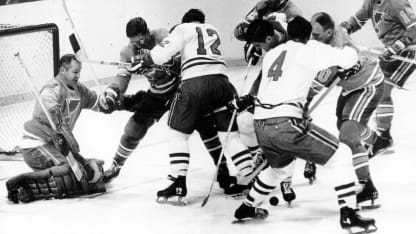Early in the 1962-63 season, Hall's remarkable endurance streak came to a strange end. After all the facial bruises and body welts incurred on the job, Hall was sidelined by a freak injury. Reaching down to fasten his leg pads, he felt a twinge in his lower back. In discomfort and unable to bend properly, Hall started the next game, Nov. 7, 1962, against the Boston Bruins. But he missed a puck he normally would have stopped, and reluctantly yielded to Denis DeJordy, who relieved him in that game and started three days later at Montreal. Hall's historic streak was over.
"I didn't want to give up the net," he said. "In those days, there was always that fear of losing your job. And, yes, I was aware of the streak."
With each Original Six franchise allowed to protect only one goalie, the Black Hawks left Hall, 35, available for the expansion draft in 1967. He spoke frequently about retiring; this time, they thought he was serious. It was a tough call for management to make and teammates to accept. "Without Glenn and (wife) Pauline taking me under their wing when I was a rookie, I would have never made it," Hall of Fame forward Stan Mikita said.
St. Louis claimed Hall in the 1967 NHL Expansion Draft and made him an offer he couldn't refuse. It was a master stroke: The Blues gave him a salary of $47,500, nearly double what he was making with Chicago. With Bowman making his NHL debut behind the bench, the tight-checking Blues reached the Stanley Cup Final in 1968, losing to the Montreal Canadiens. After two years, Hall "quit" again to paint his barn back on the farm near Edmonton, only to return for more until he really did retire after the 1970-71 season, his 18th in the NHL. He finished with 407 wins and was inducted into the Hall of Fame in 1975.
